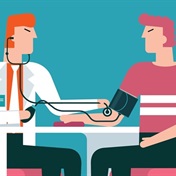Upward social mobility appears to help reduce the risk of high blood pressure in people who were born into poor or disadvantaged situations, according to a new study.
Previous research has shown that poor and disadvantaged people are at increased risk for high blood pressure, which contributes to heart disease and stroke.
Swedish researchers looked at health and socioeconomic data collected from 12,000 same-sex twins who were born between 1926 and 1958. High blood pressure was more common among adults with low socioeconomic status, with a 42% increased risk among this group. Other factors associated with high blood pressure rates included: being born to parents with low socioeconomic status, having a low birth weight, being short in stature, weighing more and drinking more alcohol.
Reducing high blood pressure
But people with low socioeconomic status who moved up in society reduced their risk of high blood pressure by nearly 20%, compared to those who stayed on the lower rungs of society across two generations, the investigators found.
The findings suggest that adults who were born poor or disadvantaged can reduce their risk of high blood pressure by improving their social status, Lovisa Hogberg, of the medical epidemiology and biostatistics department at Karolinska Institute in Stockholm, and colleagues concluded.
The study was released in the Journal of Epidemiology and Community Health.
(Copyright © 2010 HealthDay. All rights reserved.)




 Publications
Publications
 Partners
Partners











